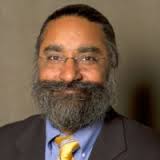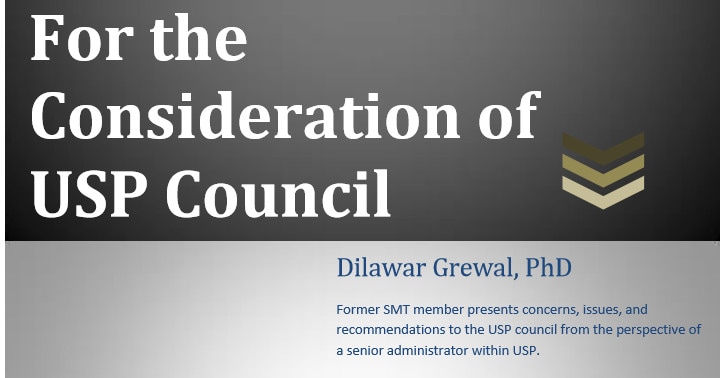"Why is USP competing with the National Training Center, the numerous vocational colleges distributed all over the country in trying to provide vocational classes instead of tertiary education classes? Why is it that instead of helping the Government of Fiji to bolster the various vocational training institutions all over the country, USP is actually subverting their very existence? Is the gain of USP-Suva worth the demise of the numerous small colleges all over the country? Is this a vision of excellence that is making USP trying to destroy a working vocational studies and training infrastructure in Fiji by diverting students to its doors?"

The Government of Fiji has had the foresight to invest in and develop a distributed structure of education at all levels. Technical colleges all over the country and a national training center at FNU have been supported by the Government to provide vocational and technical education to people who cannot or are not able to attend tertiary education institutions.
The Government of Fiji has shown its strong commitment towards tertiary education by supporting the universities and the students of Fiji via grants, scholarships and loans. The Government of Fiji is the single largest contributor to USP, contributing millions of dollars each year. This commitment and generosity is complemented by the contributions by the other member country governments and donors such as Australia and New Zealand in funding USP each year.
In return, it would be a fair expectation that USP focus on providing quality tertiary and post-graduate education to the citizens, and also develop research that benefits the economies and nations that put their faith in the quality and capabilities of USP. Why is it then that the number of programs at USP are dropping, there is limited research coming out of the university, number of teaching hours are dropping, number of professors are dropping, and the only numbers going up are the PTAFE staff and PTAFE expenses?
Why is USP competing with the National Training Center, the numerous vocational colleges distributed all over the country in trying to provide vocational classes instead of tertiary education classes? Why is it that instead of helping the Government of Fiji to bolster the various vocational training institutions all over the country, USP is actually subverting their very existence? Is the gain of USP-Suva worth the demise of the numerous small colleges all over the country? Is this a vision of excellence that is making USP trying to destroy a working vocational studies and training infrastructure in Fiji by diverting students to its doors?
There are very few options for students in Fiji to get a degree in engineering or education or business, yet, USP is limiting even those options further for these students by focusing on the development and exponential expansion of PTAFE instead. Where is the national responsibility (for Fiji and the member countries) of USP? USP pleaded with the member countries that its very existence was threatened if it didn’t get additional recurring monies from the member countries. Once the countries acquiesced and did provide more money to USP out of their tight economies, what did USP prioritize to do with that money? Did it increase its academic offerings or develop a research infrastructure to support the countries?
No, it used that money to build and expand at unprecedented scale a vocational studies and training branch in direct competition with the very valuable, diverse and distributed existing structure supported by the Fiji Government. Is this how the University should be repaying the people and Governments of Fiji and the member nations of USP?
PTAFE is nearly the largest department on campus. Its staff is paid significantly higher than the academic staff, and it is pretty much given a free reign by the VCP to do whatever it wants, while restricting more and more the abilities of the faculties. Look at the minutes of any recent Senate meeting and you will see a pattern emerging – everything related to PTAFE passes and more and more restrictions are put on faculties. If tomorrow the Fiji National University were to start offering comparable salaries to its staff, it is within reason to envision a mass exodus of the remaining professors from USP. Is this the vision of an excellent university? Do you see the Harvards and the MITs, since USP claims to be an excellent university and these two institutions embody excellence, racing to compete with the technical/vocational/junior colleges?
This is not just a matter of prioritizing PTAFE over everything else. This approach is going to have significant impact on the lives of people of the countries that USP serves. USP is more than a University, clearly shown by the commitment of the member and donor country governments to it; USP is a vehicle for progress in the region. People look at USP as the place where they can send their children to not only change their lives, but the lives of the families and the future generations. This institution has an obligation to provide affordable quality tertiary education to the coming generations in this part of the world. Removing programs means future generations have one less choice. Future economies of the region have one more factor impacting them. These are choices that not every other institution can provide, especially not the vocational education and training institutions. USP does not have to monopolize teaching of cooking, there are plenty of places that can do that very efficiently. What these places cannot do is teach engineering or finance or education because they are not a university.
It takes 3 years to get an engineering or an education degree (choose any subject area). It takes much longer to establish renowned quality programs to produce these degrees. It takes one week to set up cooking classes or bartending classes. If Fiji or member countries feel they are beginning to see a shortage of cooks, it can be easily addressed in a time frame of weeks, not so for engineers, medicine, public health, economics, biology, education and the multitude of other programs that have a huge impact on the economies and future of the countries and their citizens.
A decision on this monumental change in direction for the University should never have been left in the hands of one person.
PTAFE Recommendations:
The Council should form a committee of government and market representatives to decide on the scope and scale of PTAFE. This committee should be the one deciding where PTAFE programs should be offered, in which subject areas and to fulfill which national needs or interests. This committee should also take into consideration safeguarding small enterprises that already are a part of the distributed network of private and public providers of vocational training. Whether PTAFE should exist at all or at what scale, should be decided by this committee. USP was chartered as an institution of higher (tertiary) education, not as a shop delivering daycare, bartending and cooking classes.
Council, through its country representatives, should emphasize on specific areas of tertiary education for development. USP is obliged to serve the needs of the member countries. It should be the responsibility of Governance to make sure that Administration/Management meets its obligations. Council is profoundly kind in giving the University administration ample latitude in how it runs the University; however, it is the responsibility of the Council to rigorously check the direction in which the University is headed.
If PTAFE is to exist, Council should charge the VCP with putting into place and enforcing rules that prohibit pilfering the faculties of qualified staff. The primary functions of the University are teaching and research. This is where the top salaries should be going, not to PTAFE instructors and administrators.


